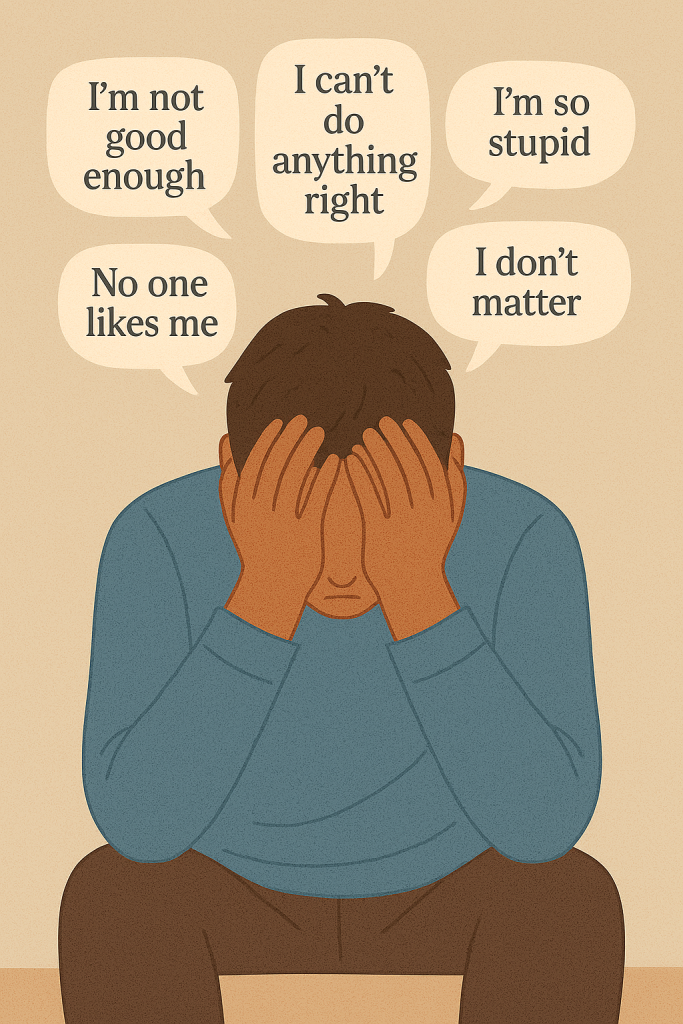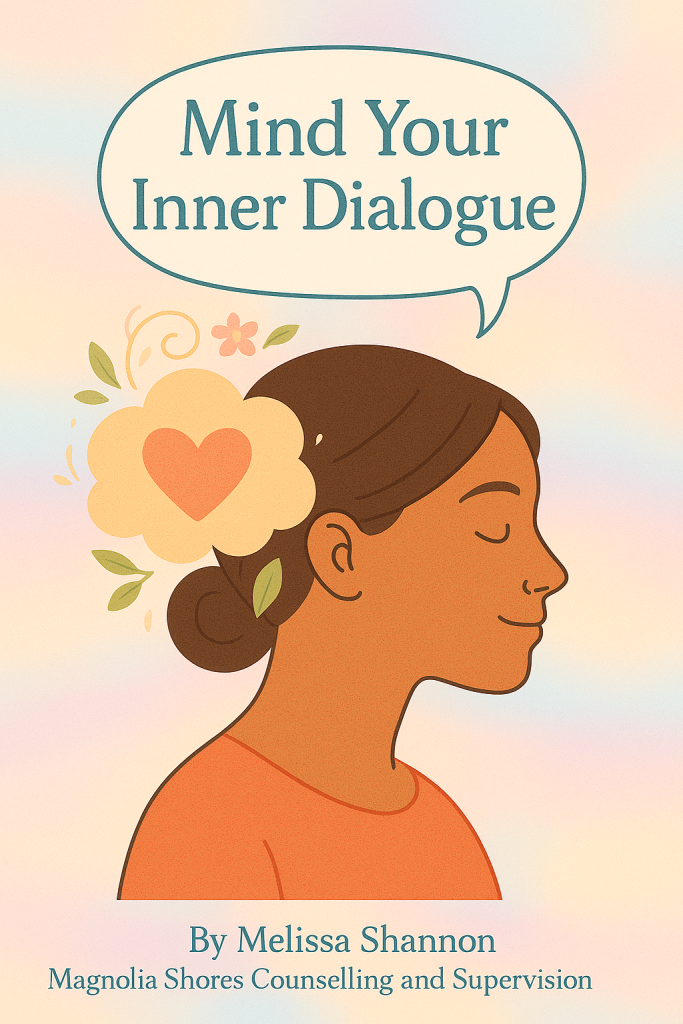Your Body Believes What Your Mind Says
Have you ever noticed how your thoughts can change the way you feel? Maybe you’ve told yourself, “I’m such a failure,” and suddenly your chest feels tight, your stomach turns, and your mood sinks. That’s no coincidence.
Our bodies listen to our thoughts. When our inner dialogue is full of criticism, fear, or negativity, our body responds as though we are in danger. Stress hormones rise, muscles tense, and it becomes harder to feel calm or think clearly.
The good news is, just as negative thoughts can affect us, so can kind ones. When we speak to ourselves with compassion, our body begins to relax. We feel safer, more hopeful, and more able to cope with life’s ups and downs.

What Is Inner Dialogue?
Your inner dialogue is the voice inside your head — the one that comments on what you do, how you look, and how you handle things. For many people, this voice is overly critical.
You might hear it say things like:
• “You always mess things up.”
• “You’re not good enough.”
• “No one else struggles like you.”
If that sounds familiar, you’re not alone. Many of us pick up this way of speaking to ourselves from childhood experiences, school, work, or the pressure to be perfect.
But just because it’s familiar doesn’t mean it’s helpful — or true.
Be Kind to Yourself
Imagine saying to a friend, “You’re so useless” after they made a mistake. Most of us wouldn’t dream of it. Yet we say things like that to ourselves without thinking twice.
What if you started speaking to yourself as you would to a loved one? It might sound like:
- “It’s okay to make mistakes. I’m learning.”
- “This is hard, but I’m doing my best.”
- “I deserve kindness, even when I’m struggling.”
These small changes in how you talk to yourself can make a big difference. They can help reduce anxiety, lift your mood, and even improve your physical health.
Start Noticing Your Inner Voice
The first step is awareness. Pay attention to how you speak to yourself throughout the day. You might even try writing down some of the things you catch your inner critic saying.
Once you’re aware of these patterns, try gently challenging them. Ask yourself:
- “Would I say this to someone I care about?”
- “Is there another way I could look at this?”
- “What do I need to hear right now instead?”
Even if it feels awkward at first, keep practising. Kindness is a skill — and you deserve to learn it.
A Final Thought
You spend more time with yourself than with anyone else. You are your own lifelong companion.
So be gentle. Be patient. Be kind.
Because your body believes what your mind says — and you deserve to feel safe, supported, and cared for, starting with the words you say to yourself.
Need a Little Support?
Sometimes it’s hard to change your inner dialogue on your own. If you’ve lived with self-criticism for a long time, it can feel like second nature.
Working with a counsellor can help you understand where these messages came from, and how to replace them with ones that support your growth and well-being. Therapy can be a space where your voice — and your pain — are met with compassion.
If you’d like to explore this topic further in a safe, supportive setting, feel free to get in touch. I’m here to help.
Warmly
Melissa

